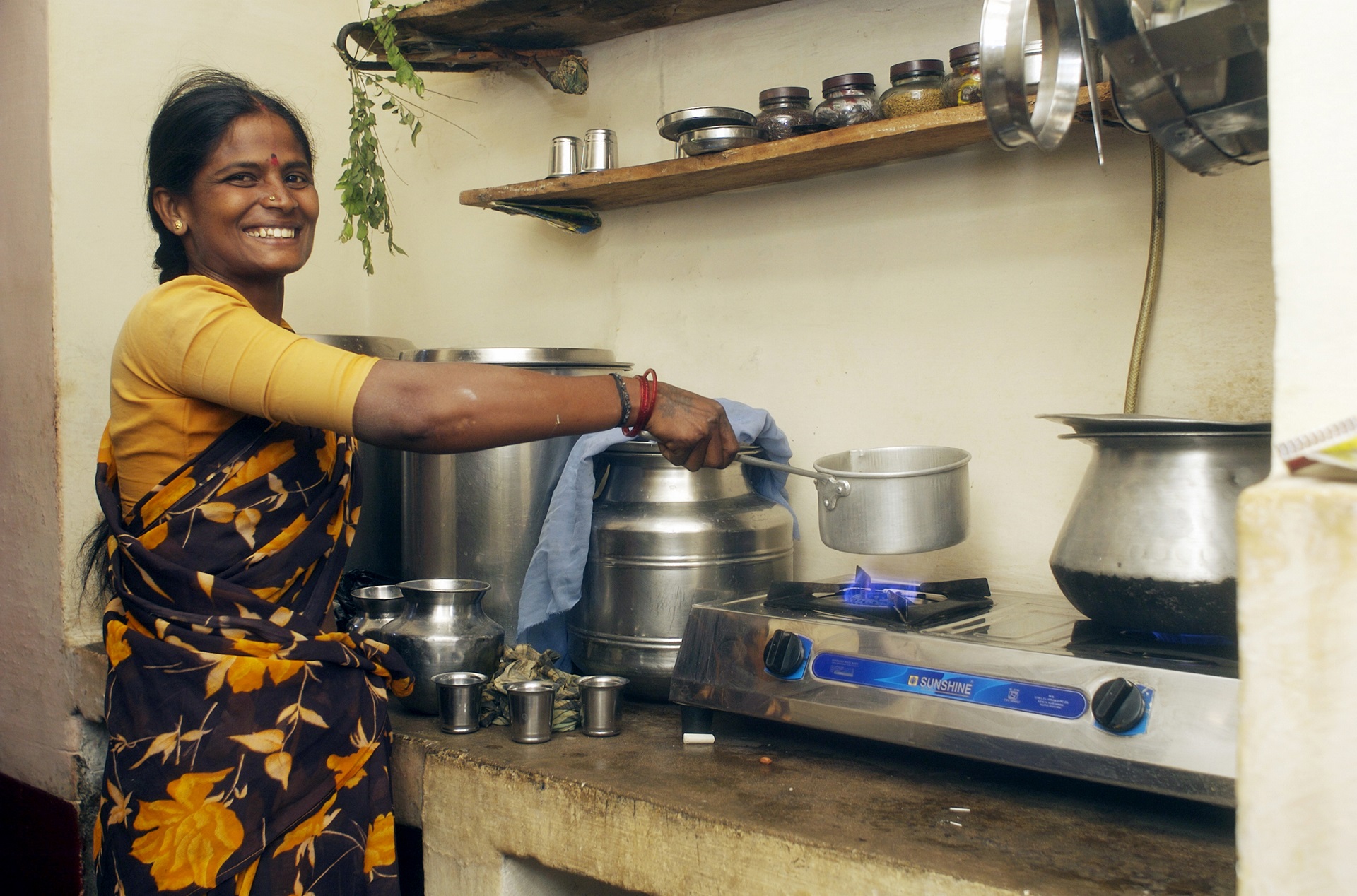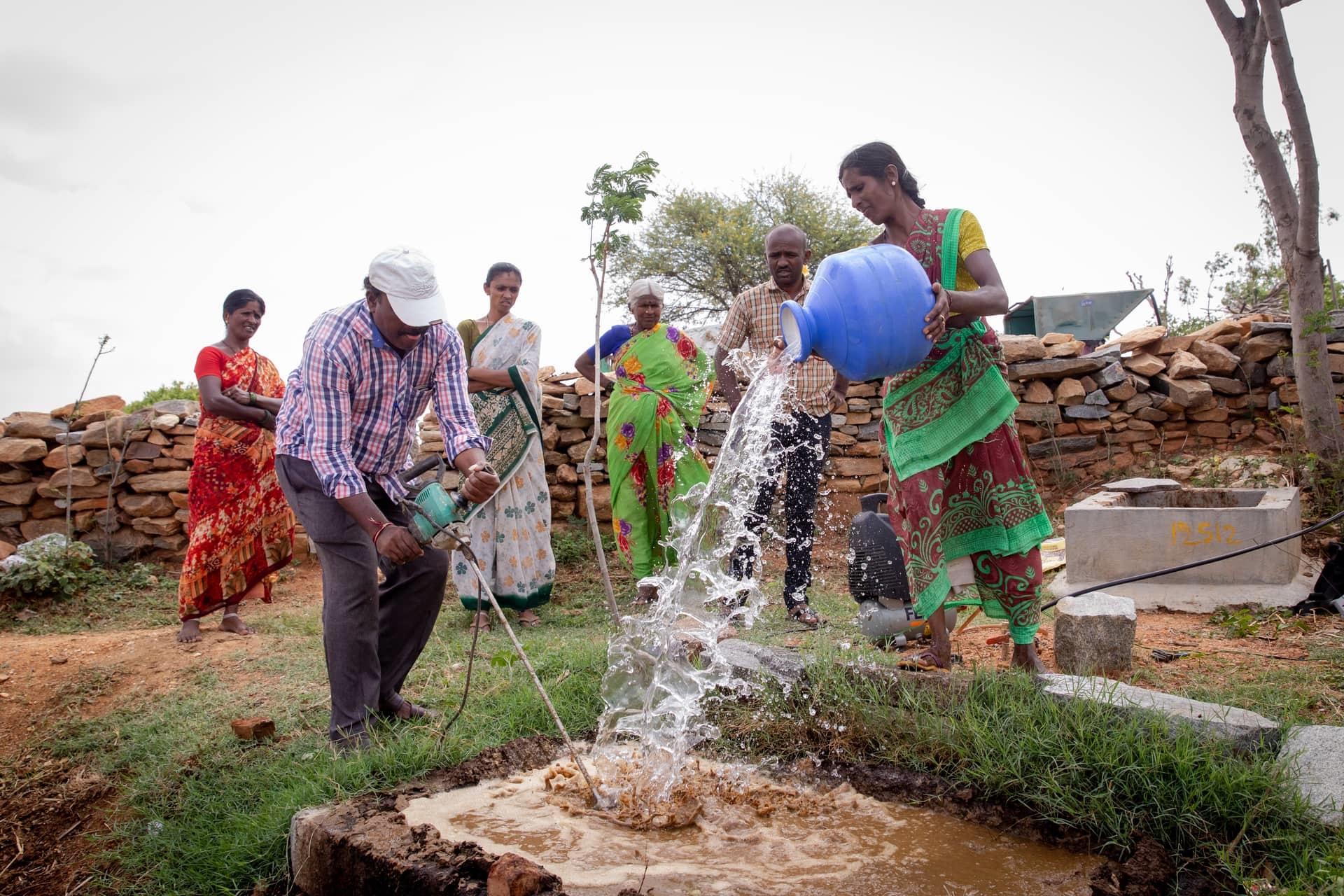From cow dung to biogas: this is how Athora offsets carbon emissions
7 February 2022 | 15:00

In order to make its business operations completely climate-neutral, Athora Netherlands offsets the unavoidable carbon emissions by financing projects from the FairClimateFund. This year we chose a sympathetic project in India: around 12,000 households generate their own 100% sustainable biogas from cow manure. For safe and sustainable cooking.
Although Athora Netherlands puts a lot of effort in saving energy, we can't completely avoid greenhouse gas emissions. That is why we work together with FairClimateFund. After a career at the precursors of Athora, fund manager and former colleague Gert Crielaard stepped into the world of carbon credits. He explains how the projects of FairClimate Fund not only reduce carbon emissions, but also have a positive impact on the living conditions of local communities.
Climate projects in developing countries
The FairClimateFund is part of the development organisation Cordaid and has the theme of climate change as a common thread running through all its projects. "Of course, the bulk of carbon emissions come from rich, Western countries. Reductions must be made there too," Crielaard emphasises. "But in order to meet the Paris climate targets, developing countries need to make just as much of a transition. The problem, however, is often funding, and that's where we offer a solution with FairClimateFund by making climate projects possible with funding from the private sector."
FairClimateFund's approach shows that climate gains can be achieved with relatively simple interventions. The organisation focuses on cleaner cooking and reforestation projects. From solar stoves in Chad, to cookstoves with a much more efficient combustion in Ethiopia, or reforestation in Peru. All these projects do not only reduce carbon emissions, but also have all kinds of beneficial side effects for the local communities.
No more cooking on unhealthy wood fires
So too is the biogas project in India, which Athora has chosen this year. It is a project that even has the Faitrade quality mark. "In India (and many other developing countries) a large proportion of the population still cooks on open fires and that is dangerous in several ways," explains Gert Crielaard. "Not only does it cause air pollution and greenhouse gas emissions, but it also poses a public health risk. You can imagine what happens when you cook on a wood fire indoors. It causes headaches and burning eyes, and–much worse–lung cancer and COPD." In fact, according to research, more than a million people in India die each year from diseases caused by indoor air pollution (of which cooking is the main cause).
 From cow dung to biogas and slurry
From cow dung to biogas and slurry
Biogas offers a solution to this problem. In an underground masonry bio-digester goes organic waste, mainly cow dung, which is converted into methane gas and so-called 'bioslurry'. The gas is piped through a plastic hose to the house where it is connected to a two-burner stove. And the residual bioslurry, in turn, makes a good fertiliser, which eliminates the need for farmers to use artificial fertiliser. "The production of fertiliser has a huge carbon footprint and is expensive to buy. So it's beneficial if farmers don't need that. In addition, research shows that the productivity of small-scale farming can be increased by using bioslurry."
In addition to CO2 reduction and beneficial health effects, there are other benefits. For example, women don't have to spend hours each day gathering wood. And trees that absorbe CO2 don't need to be cut down for firewood anymore.
Carbon credits
The farmer families themselves own the biogas installations. They are 100% financed with carbon credits. Credits for which farmers receive a fair trade price. By now, some 12,000 families in the province of Karnataka are connected.
The compensation of carbon emissions should of course never be a reason to sit back and relax. It is important to continue to look carefully at where you can reduce the carbon footprint of your business operations, emphasises Crielaard. "We also help companies to take a look at their own production chain. You can minimise your own impact by buying your raw materials closer to home, for example. But that is less applicable to a financial institution like Athora. If you have done everything to minimise the energy use of your office buildings, make the transport movements of employees as sustainable as possible and minimise your paper use, then it is reassuring to know that through our carbon credits you can have a positive impact in countries where climate financing is not always available."
"Thanks to FairClimateFund's biogas project, households in rural India will have access to a 100% sustainable and clean way of cooking. Cooking on biogas is better for health, climate and environment and saves households time and money."
 More information about the project? Take a look at the factsheet.
More information about the project? Take a look at the factsheet.